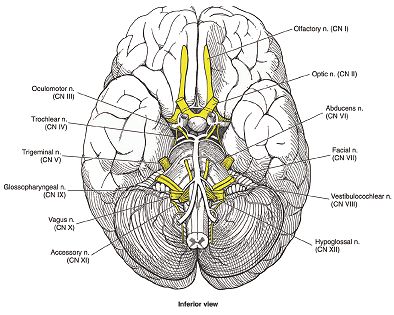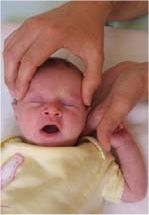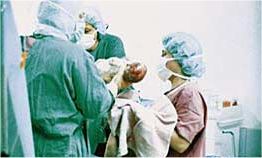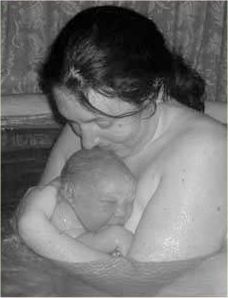|
Five Reasons Why Your Birth
Can Affect Your Baby & Parenting
by Sarah Ockwell-Smith - BabyCalm, United Kingdom
July 23, 2011
When I meet a new
mum, dad and baby for the first time at a BabyCalm workshop I always start with
the same question:
“tell me about your birth”
Mostly it’s met with confusion, wrinkled eyebrows and exchanged curious looks,
very often they ask me “why?” straight back. After all they haven’t come to see
me to talk about their birth, they’re here to see me to work out why their baby
cries so much. To me though the two are so inextricably linked it is impossible
to understand the issues they are having with their newborn unless we go back to
the beginning (sometimes the cause goes even further back – I’m very aware of
that!). So, here’s why I ask that question and why I believe that any baby
calmer working with new parents MUST consider the baby’s birth in order to
really help:
1) The birth can have lasting physical consequences for the baby
|

If a baby is born by C-Section, ventouse or forceps my ears always
prick up immediately, especially if the labour has been a long and
involved malpresentation. I work very closely with a local
chiropractor who specializes in working with new babies and over the
years I have learnt an awful lot from her. Imagine if your
head
 had
been crooked at an unusual angle for several weeks, then imagine
that somebody was pushing your head into that position even harder
for a whole day, you’d have a headache and neck ache right? I have
seen babies in obvious discomfort, several with torticollis unable
to turn their head – aside from the discomfort this can also have an
effect on feeding – several mums have said “he just won’t feed from
that side and cries whenever we try” – they hadn’t considered it
might be painful for their baby to turn their head to do so.
Also when you start delving into the world of cranial nerves even
more the whole issue becomes more complex. During labour the
baby’s cranial bones move and overlap (think of a cone headed
newborn!), this is normal and the bones usually return to their
normal position over a few days after the birth, mostly via the
process of the baby sucking (and the movement of the upper and lower
jaw) which stimulates the base of the skull via the palate.
Sometimes however things don’t return to normal and often abnormal
skull compression becomes noticeable via the baby’s feeding habits
and need to suck much more than usual. If the baby’s vagus
nerve (the nerve directly linked to digestion) is compressed this
can also have noticeable effects on a baby’s digestive system
causing pain. All of this is more likely to happen if the
labour is long, the baby is malpresented (I often notice babies who
laid in an asynclitic presentation during labour are more fussy) or
born via emergency section, forceps or ventouse. Visiting a
good chiropractor or cranial osteopath can make a profound
difference for some new parents and babies. I believe in this
so passionately I believe it should be available on the NHS, after
all we check a baby’s hearing after birth – why not his skull and
spine? had
been crooked at an unusual angle for several weeks, then imagine
that somebody was pushing your head into that position even harder
for a whole day, you’d have a headache and neck ache right? I have
seen babies in obvious discomfort, several with torticollis unable
to turn their head – aside from the discomfort this can also have an
effect on feeding – several mums have said “he just won’t feed from
that side and cries whenever we try” – they hadn’t considered it
might be painful for their baby to turn their head to do so.
Also when you start delving into the world of cranial nerves even
more the whole issue becomes more complex. During labour the
baby’s cranial bones move and overlap (think of a cone headed
newborn!), this is normal and the bones usually return to their
normal position over a few days after the birth, mostly via the
process of the baby sucking (and the movement of the upper and lower
jaw) which stimulates the base of the skull via the palate.
Sometimes however things don’t return to normal and often abnormal
skull compression becomes noticeable via the baby’s feeding habits
and need to suck much more than usual. If the baby’s vagus
nerve (the nerve directly linked to digestion) is compressed this
can also have noticeable effects on a baby’s digestive system
causing pain. All of this is more likely to happen if the
labour is long, the baby is malpresented (I often notice babies who
laid in an asynclitic presentation during labour are more fussy) or
born via emergency section, forceps or ventouse. Visiting a
good chiropractor or cranial osteopath can make a profound
difference for some new parents and babies. I believe in this
so passionately I believe it should be available on the NHS, after
all we check a baby’s hearing after birth – why not his skull and
spine? |
2) The birth can
have lasting physical consequences for the mother.

Again, in my utopian world all new mothers would be visited by a chiropractor or
osteopath. Having suffered from hideous SPD (now known as PGP) during
pregnancies 1 and 2 it wasn’t until no.3 I discovered that – hey pregnancy
didn’t have to hurt! I was literally changed woman. I was lucky in that I only
suffered during pregnancy, but I have known plenty who continued to suffer after
the birth, this affected their posture, but standing and seated and the constant
discomfort slowly begins to erode into the psyche, along with the discomfort
experienced whilst breastfeeding, often meaning babies are latched poorly – and
we all know where that leads. It’s not just the pelvis and spine that matter
though. I have met too many women suffering with perineal trauma, poorly
stitched episiotomies and the like which not only cause great physical
discomfort, but emotional too – which naturally has a knock on effect long after
the event.
3) The birth can
have lasting psychological consequences for the baby
 Even
those that have gone supposedly “well” or have been “natural”. The two big
culprits to look out for here are the use of exogenous oxytocin (aka syntocinon/pitocin
depending on where you’re reading from!) and what happened immediately after
birth. Let’s start with the artificial oxytocin. It’s impossible to talk about
this without mentioning Michel Odent. In his article “If I were the baby:
questioning the widespread use of synthetic oxytocin” Michel discusses the blood
flow from mother to baby via the placenta and states the permeability is higher
in the mother-foetal direction than vice versa (i.e: blood travels from the mum
to baby via the placenta easily – so too therefore does whatever substance is
travelling in the mother’s blood), Michel’s concern is the “oxytocin-induced
desensitization of the oxytocin receptors”. “In other words, it is probable
that, at a quasi-global level, we routinely interfere with the development of
the oxytocin system of human beings at a critical phase for gene-environment
interaction”. What does this mean in reality? well we know that when artificial oxytocin is put into the maternal blood stream during labour so to it enters the
babies and can have profound and lasting consequences on the neurophysiology of
the baby for the rest of their life. Even
those that have gone supposedly “well” or have been “natural”. The two big
culprits to look out for here are the use of exogenous oxytocin (aka syntocinon/pitocin
depending on where you’re reading from!) and what happened immediately after
birth. Let’s start with the artificial oxytocin. It’s impossible to talk about
this without mentioning Michel Odent. In his article “If I were the baby:
questioning the widespread use of synthetic oxytocin” Michel discusses the blood
flow from mother to baby via the placenta and states the permeability is higher
in the mother-foetal direction than vice versa (i.e: blood travels from the mum
to baby via the placenta easily – so too therefore does whatever substance is
travelling in the mother’s blood), Michel’s concern is the “oxytocin-induced
desensitization of the oxytocin receptors”. “In other words, it is probable
that, at a quasi-global level, we routinely interfere with the development of
the oxytocin system of human beings at a critical phase for gene-environment
interaction”. What does this mean in reality? well we know that when artificial oxytocin is put into the maternal blood stream during labour so to it enters the
babies and can have profound and lasting consequences on the neurophysiology of
the baby for the rest of their life.
Michel goes on to
say “we now have scientific evidence that explains how the capacity to love
develops through a complex interaction of hormones, hormones that are secreted
during many experiences of love and close human interaction including sexual
intercourse and conception, birth, lactation, and even sharing a meal with loved
ones. The role of oxytocin, the “love hormone,” is particularly important. Natural oxytocin delivered by human touch, but not synthetic oxytocin delivered
by an intravenous drip, has important effects on many organs in the body,
including the brain. Those important effects, Odent theorizes, can cause the
baby to grow with damaged oxytocin receptors which he links to raising levels of
autism, anxiety, stress and disturbed ”self loving” – including higher levels of
anorexia, drug and alcohol dependency.
 Not
to mention on another level how traumatizing birth is for babies – and here I am
not implying birth needs to be traumatic for babies, when I trained in baby
massage with Peter Walker he said to us “what if the process of birth was the
very first massage we receive? What if birth is a pleasurable experience for the
baby?” This really made me think – it’s what they are born into that is more
traumatic – bright lights, rough handling, scratchy towels, cold instruments,
latex gloves, cord clamps, silly hats and scratch mitts, injections or bitter
tasting oral drops. It’s no wonder babies cry when born! Not
to mention on another level how traumatizing birth is for babies – and here I am
not implying birth needs to be traumatic for babies, when I trained in baby
massage with Peter Walker he said to us “what if the process of birth was the
very first massage we receive? What if birth is a pleasurable experience for the
baby?” This really made me think – it’s what they are born into that is more
traumatic – bright lights, rough handling, scratchy towels, cold instruments,
latex gloves, cord clamps, silly hats and scratch mitts, injections or bitter
tasting oral drops. It’s no wonder babies cry when born!
I was intrigued to learn of the importance of amniotic fluid in calming babies. When you think of this more deeply it’s kind of obvious – a baby spends 9 months in
amniotic fluid – it is what you might call “a constant”, naturally then the
scent of the fluid on their skin (and that of their mother) after birth will be
calming to them, reminding them of home you might say – yet, what do we do?
We
wipe it off, dry them and wrap them up in a rough towel – despite the fact there
is sound scientific evidence to suggest this is the wrong thing to do – babies
whose amniotic fluid is not wiped off after birth cry significantly less (ref:
H. Varendi et al., “Soothing effect of amniotic fluid smell in newborn infants,”
Early Hum Dev (Estonia) 51, no. 1 (Apr 1998): 47-55) – and this is without even
discussing skin to skin to contact (which we’ll do below).
4) The birth can have lasting psychological consequences for the mother.
 On
a continuation of the above theme. We know that the blood brain barrier prevents
artificial oxytocin from entering the brain – this may not seem important when
you are told that you need an oxytocin drip to “speed up” or even start your
labour – or when you are told it’s best you have an injection to deliver your
placenta and prevent blood loss (all of which contain synthesized oxytocin) –
but when you understand that this results in a direct lack of oxytocin
circulating to the maternal brain we begin to realize quite what catastrophic
effects the usage off these supposedly “safe” chemicals can have upon the
bonding of mother and child and the initiation (and even long term success) of
breastfeeding. We know oxytocin is the hormone of love and if we are depriving
mothers of this in their brain it doesn’t take a rocket scientist to work out
how we may be damaging the love process between mother and baby. So often I work
with new mothers ashamed to admit that they still don't know if they really love
their babies or that it took them a long time, that there was no instant “rush
of love”. I have experienced it both ways. My first two births were syntocinontastic, the first one I had “failed to progress” (or they had failed
to wait – you decide!) and thus it was deemed my failure of a body couldn’t get
my baby out without a drip to ramp up my contractions, I was then injected with
syntometrine against my consent (i.e.: I wasn’t even asked for consent – “I’m
just giving you the injection for the placenta now dear” – jab and in it went
before I had a chance to say anything) – my second birth was an induction for
pre-eclampsia and I was told I HAD to have syntometrine because I was ill/had
been induced (yes I know – I was young and naive, I know a lot more now and
only wish I could turn back the clock!). Did I fall instantly in love with those
babies? No. My first adored by about the age of 3 weeks, my second, well if I’m
honest I still feel as if there is something chemical missing between us, of
course I love my children all the same – but there’s something not there with
us. Which is no surprise considering my induction – the fact he was whisked
away by paeds because of meconium, given back to me fully swaddled and kept on
the ward for observations for 4 days after the birth. Every time I brought him
into my bed to sleep I was told he was not allowed to sleep out of his fish bowl
and on several occasions I woke to find he had been taken from my arms and put
back in the fish bowl. I realize now we had no skin to skin at all until 5 days
after birth, no small wonder I ended up with PND and only breastfed for 3
months…..and then there was Rafferty and Violet. Rafferty arrived at home, in a
birth pool, in my dimly lit living room (see the photo below) with an
incredibly respectful midwife who didn’t touch us at all. Nobody, but me, laid
hands on Rafe until he was 3 days old. Oh my goodness now I knew what they meant
by “love at first sight”. Within 30 minutes of his birth (still in my arms in
the pool) I would have died for him, I didn’t just love him though, I loved
everyone – it was as if I was a bubble of golden, warm love. I have never felt
so high, drugged or drunk in my life. THIS is how it should be and this was how
it was for my last baby, Violet. No small wonder they are both super calm and
confident, why I have never stopped breastfeeding since Rafe was born in 2005. The love was chemical….and it wasn’t there the first two times. I look at photos
of my first two births and my eyes are empty, dead, hollow pools of sadness for
the natural birth I had lost, the pain and indignity I had suffered, the trauma
I had endured. I didn’t feel love, I felt nothing….relief it was over maybe, but
that’s all and feelings of inadequacy, grief and confusion that lasted for years
after the event. Is it any wonder why so many new mothers find it hard to bond
with their baby? Hard to interpret their cries? Hard to hear their instinct?
We
strip so many mothers of the chemical euphoria they should experience and pay no
attention to the after effects. On
a continuation of the above theme. We know that the blood brain barrier prevents
artificial oxytocin from entering the brain – this may not seem important when
you are told that you need an oxytocin drip to “speed up” or even start your
labour – or when you are told it’s best you have an injection to deliver your
placenta and prevent blood loss (all of which contain synthesized oxytocin) –
but when you understand that this results in a direct lack of oxytocin
circulating to the maternal brain we begin to realize quite what catastrophic
effects the usage off these supposedly “safe” chemicals can have upon the
bonding of mother and child and the initiation (and even long term success) of
breastfeeding. We know oxytocin is the hormone of love and if we are depriving
mothers of this in their brain it doesn’t take a rocket scientist to work out
how we may be damaging the love process between mother and baby. So often I work
with new mothers ashamed to admit that they still don't know if they really love
their babies or that it took them a long time, that there was no instant “rush
of love”. I have experienced it both ways. My first two births were syntocinontastic, the first one I had “failed to progress” (or they had failed
to wait – you decide!) and thus it was deemed my failure of a body couldn’t get
my baby out without a drip to ramp up my contractions, I was then injected with
syntometrine against my consent (i.e.: I wasn’t even asked for consent – “I’m
just giving you the injection for the placenta now dear” – jab and in it went
before I had a chance to say anything) – my second birth was an induction for
pre-eclampsia and I was told I HAD to have syntometrine because I was ill/had
been induced (yes I know – I was young and naive, I know a lot more now and
only wish I could turn back the clock!). Did I fall instantly in love with those
babies? No. My first adored by about the age of 3 weeks, my second, well if I’m
honest I still feel as if there is something chemical missing between us, of
course I love my children all the same – but there’s something not there with
us. Which is no surprise considering my induction – the fact he was whisked
away by paeds because of meconium, given back to me fully swaddled and kept on
the ward for observations for 4 days after the birth. Every time I brought him
into my bed to sleep I was told he was not allowed to sleep out of his fish bowl
and on several occasions I woke to find he had been taken from my arms and put
back in the fish bowl. I realize now we had no skin to skin at all until 5 days
after birth, no small wonder I ended up with PND and only breastfed for 3
months…..and then there was Rafferty and Violet. Rafferty arrived at home, in a
birth pool, in my dimly lit living room (see the photo below) with an
incredibly respectful midwife who didn’t touch us at all. Nobody, but me, laid
hands on Rafe until he was 3 days old. Oh my goodness now I knew what they meant
by “love at first sight”. Within 30 minutes of his birth (still in my arms in
the pool) I would have died for him, I didn’t just love him though, I loved
everyone – it was as if I was a bubble of golden, warm love. I have never felt
so high, drugged or drunk in my life. THIS is how it should be and this was how
it was for my last baby, Violet. No small wonder they are both super calm and
confident, why I have never stopped breastfeeding since Rafe was born in 2005. The love was chemical….and it wasn’t there the first two times. I look at photos
of my first two births and my eyes are empty, dead, hollow pools of sadness for
the natural birth I had lost, the pain and indignity I had suffered, the trauma
I had endured. I didn’t feel love, I felt nothing….relief it was over maybe, but
that’s all and feelings of inadequacy, grief and confusion that lasted for years
after the event. Is it any wonder why so many new mothers find it hard to bond
with their baby? Hard to interpret their cries? Hard to hear their instinct?
We
strip so many mothers of the chemical euphoria they should experience and pay no
attention to the after effects.

5) The birth can have lasting psychological consequences for the father.
 All
too often we forget about the dads, but birth can be – and is – an immensely
emotional event for the father, both positively and negatively. Nobody seems to
care about the dads though, nobody holds their hand and tells them they are
doing well, nobody hugs them and listens to their worries or tells them “it’s
OK” to cry. We expect them to be a tower of strength and support – yet where is
their support? The sooner we catch onto this the better. As a doula I now firmly
believe my role is 10% supporting the mum (if birthing women are left alone they
pretty much don’t need help from me or anyone else) and 90% support the dad,
it’s funny but a lot of expectant fathers are reluctant when it comes to the
idea of employing a doula, the mothers are often much, much keener and the dads
worry that they will feel left out. In reality it couldn’t be further from the
truth and research indicates at births with a doula present the partner is more
supportive and more involved. Anyway, I’m starting to digress, my point here is
that when birth goes well it can be an amazing high for the dad too – it can
help him bond with his baby almost as instantly as the mum, but when it goes
bad……….oh when it goes bad….I have been at a couple of ventouse births and
episiotomies now, sitting at “the business end” and sometimes the visions and
noises still haunt me – how must it feel to see your partner in distress – being
cut or having a baby pulled out of her with great force? And then being sent
home, alone, 2 hours later if your baby was born outside of visiting hours, yet
we don’t seem to understand how traumatic witnessing a birth such as that can be
for a dad – and the impact that can have upon his transition to fatherhood.
Indeed we know when dads are supportive of breastfeeding the mother is much more
likely to be successful and feed for longer, the birth can have a big impact on
the dad and thus impact on the support he is able to give to his partner. All
too often we forget about the dads, but birth can be – and is – an immensely
emotional event for the father, both positively and negatively. Nobody seems to
care about the dads though, nobody holds their hand and tells them they are
doing well, nobody hugs them and listens to their worries or tells them “it’s
OK” to cry. We expect them to be a tower of strength and support – yet where is
their support? The sooner we catch onto this the better. As a doula I now firmly
believe my role is 10% supporting the mum (if birthing women are left alone they
pretty much don’t need help from me or anyone else) and 90% support the dad,
it’s funny but a lot of expectant fathers are reluctant when it comes to the
idea of employing a doula, the mothers are often much, much keener and the dads
worry that they will feel left out. In reality it couldn’t be further from the
truth and research indicates at births with a doula present the partner is more
supportive and more involved. Anyway, I’m starting to digress, my point here is
that when birth goes well it can be an amazing high for the dad too – it can
help him bond with his baby almost as instantly as the mum, but when it goes
bad……….oh when it goes bad….I have been at a couple of ventouse births and
episiotomies now, sitting at “the business end” and sometimes the visions and
noises still haunt me – how must it feel to see your partner in distress – being
cut or having a baby pulled out of her with great force? And then being sent
home, alone, 2 hours later if your baby was born outside of visiting hours, yet
we don’t seem to understand how traumatic witnessing a birth such as that can be
for a dad – and the impact that can have upon his transition to fatherhood.
Indeed we know when dads are supportive of breastfeeding the mother is much more
likely to be successful and feed for longer, the birth can have a big impact on
the dad and thus impact on the support he is able to give to his partner.
There is so much more I could write here, but I’m wary that I’m up to 2500 words
already so I’ll revisit this some other day.
What do I do with the information that is given to me about the birth from the
new parents? Most of the time, nothing (sometimes I’ll suggest a visit to a
chiropractor, breastfeeding counselor or birth afterthoughts midwife or a
telephone call to the birth trauma association but rarely) – I listen and I
listen some more. For that mum or dad it may be the first time somebody has
listened and never underestimate the impact that feeling listened to can have on
somebody’s state of mind.
Next time you meet a new mum with a colicky baby – think about asking her
about her birth.
used with permission from the author

Sarah Ockwell-Smith, mother of four and owner of
BabyCalm
View full feature
here |